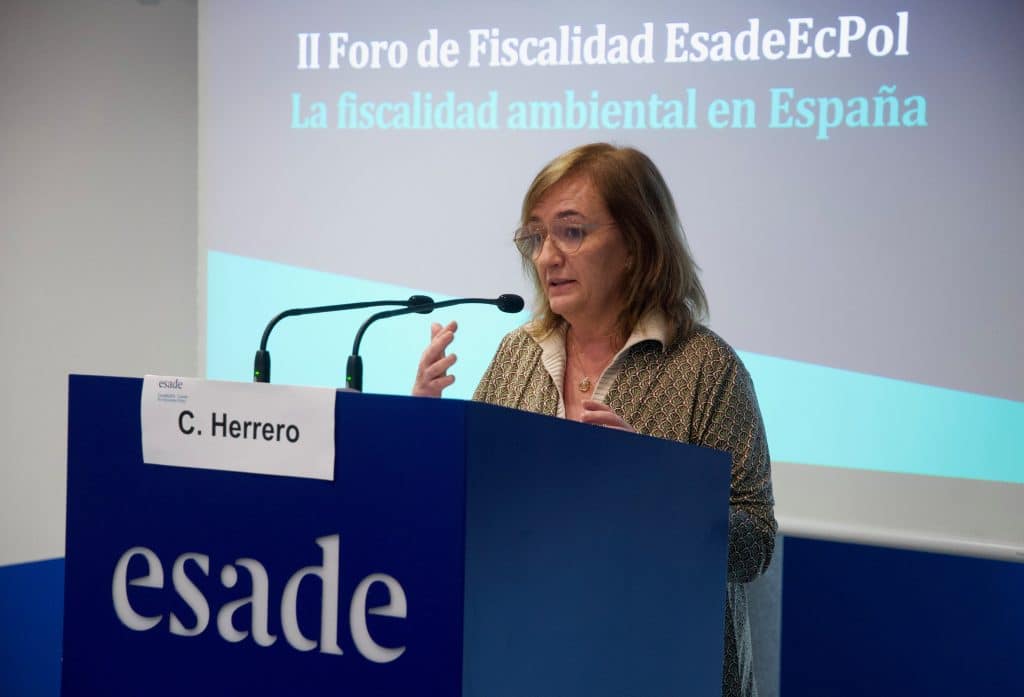
The president of the Independent Authority for Fiscal Responsibility (AIReF), Cristina Herrero, today closed the 2nd Taxation Forum organised by EsadeEcPol, which focused on environmental taxation and the energy transition. She highlighted the importance of climate change as a global challenge and the need to tackle it with a comprehensive and long-term vision, given the impact it has on the public accounts.
Europe’s commitment to net zero emissions by 2050 requires a wide range of climate transition measures that will have an impact on public finances, whether they are taken on the revenue or expenditure side. Indeed, also regulatory measures to support this climate transition, which have no apparent budgetary cost, may have an effect or second round effect on public finances.
In this context, climate change requires a comprehensive and long-term vision to incorporate all the instruments or channels through which the accounts are impacted and in view of the future impact that the success of the climate transition will have on the revenue structure and spending policies of each country. And in this sense, it should be introduced into the work agendas of the Independent Fiscal Institutions (IFIs), such as AIReF.
Currently, there are few IFIs that address the challenge of climate transition in public accounts, and even fewer with this comprehensive and long-term vision. Cristina Herrero highlighted the case of the British IFI, the OBR, which in 2021 already included in its fiscal risk report the risks associated with achieving net zero emissions in 2050. AIReF, for its part, aspires to be able to come up with this type of analysis and incorporate it a future edition of an opinion on the long-term sustainability of the General Government sector.
AIReF, in addition to assessing the cost of the budgetary measures earmarked for this purpose, has made some ex post assessments related to the green transition, such as the analysis of a tax benefit with an environmental objective within the more global analysis of tax benefits carried out in the second phase of the first Spending Review, published in 2020; or the current assessment on the management and treatment of urban waste, which forms part of the third and final phase of the Spending Review which it is expected to be published this year.






